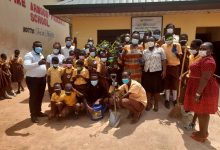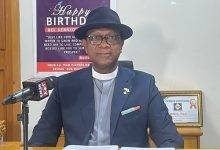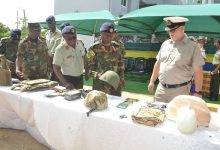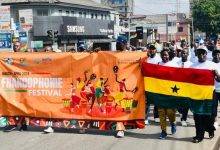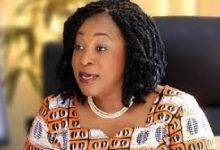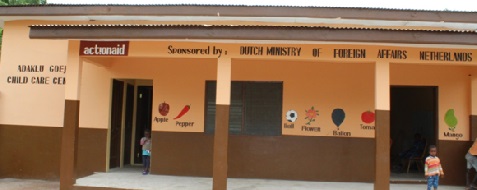
The childcare centres put up by Action Aid Ghana (AAG), a Non-Governmental Organisation (NGO) in some regions in the country are offering ample time for many women to carry out their farming and other economic activities to generate income for their households.
This was made known during a dissemination workshop on a project dubbed, “Promoting Opportunities for Women Empowerment and Rights (POWER)” held at Bolgatanga in the Upper East Region on Monday.
The five-year POWER project, being implemented by AAG with funding support from the Dutch Ministry of Foreign Affairs, begun implementation in 2016 in seven regions in the country.
Among the beneficiary regions are Volta, Brong-Ahafo, Northern, Greater Accra, Upper East and Upper West.
Whilst the project is aimed at empowering vulnerable rural women and influencing their ability to control their income, it is also to empower more rural women to practice climate resilient sustainable agriculture and have access to markets and other productive resources.
Presenting a research findings on the project, the Documentation, Monitoring and Evaluation Officer of the POWER, Ms Priscilla Asangalisah, stated that the project had made a lot of significant impact on the livelihoods of many women.
The research revealed that 6,277 women are organised into groups and were actively participating in group income activities, exceeding the initial target of 6,000 women by the project.
She said 93 per cent of the targeted women reported in increased skills and are confident in demanding for their rights and reporting cases of violence, exceeding the initial target of the 70 per cent earmarked by the project to be achieved.
The project which further seeks to promote economic livelihood opportunities for women and to advocate for reduction and redistribution of work burden particularly Unpaid Care Work (UCW) on women, revealed in its findings that many households, communities and other stakeholders had now placed high premium on Women’s UCW and in some cases UCW redistributed.
The research also pointed out that women’s access and control of resources particularly in the area of land to undertake agriculture activities had increased than before, adding that many women are now aware as to where to look for farm inputs as a result of the project intervention.
Whilst indicating that the research was necessary because it would enable the project to identify challenges confronting it and to fashion out ways of addressing the challenges, Ms Asangalisah said it would also enable the project to measure its achievements, to enable them device measures to sustain the gains made.
FROM SAMUEL AKAPULE, BOLGATANGA

